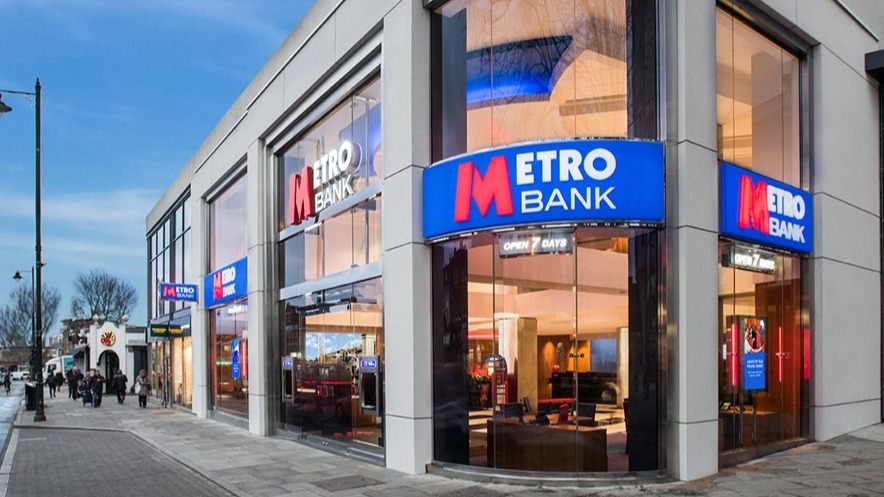Metro Bank, Close Brothers and Paragan have reportedly expressed concerns about a delay to regulatory approvals from the Prudential Regulation Authority (PRA) which could be costing them millions of pounds.
The three challenger banks have been calling on the regulator to let them use internal models to measure risk-weighted assets for three years, according to a report by the Financial Times (FT).
The newspaper said that while banks usually favour internal systems over standardised models that are established by financial watchdogs, largely because they are not as punitive, it is traditionally only financial institutions that have been lending for a longer time that are given permission to use them.
People close to the matter told the FT that foot-dragging on regulatory approvals has driven some challenger banks to restrict lending.
Approval from the regulator would allow the banks to reduce capital saved for future losses in the same way larger banks do, in turn enabling them to lend more money.
The sources said that the challenger banks are keen for approvals to come through before 2025, when global capital rules are launched.
The PRA declined to comment.
The news comes after UK merchant bank Close Brothers took a more than 90 per cent hit to profits earlier this year.
In the six months to 31 January 2023, pre-tax profits at the bank dropped from £128.9 million in the first half of the financial year, to just £11.7 million.
The bank’s latest accounts, which saw shares drop by 6.5 per cent after they were published this morning, follow its decision to wind down Novitas, a provider of loans for legal proceedings, which it bought in 2017.
Close Brothers said that it decided to stop the approval of new loans with the business in 2021 after a strategic review found that the company lacked underlying security for its loans as well as a strong track record of performance and in-house lending expertise.
Metro Bank recently returned to profit after a loss in 2022, with the bank attributing its stronger financial results to keeping a tight rein on costs while benefitting from interest rate hikes.
The mid-sized British lender’s first half accounts recorded an underlying pre-tax profit of over £16 million in the six months to 30 June in contrast to a £48 million loss in the previous year.
The introduction of successive rate increases by the Bank of England (BoE) has enabled lenders to make more money on borrowing despite the threat to the economy posed by rampant inflation, which has helped boost profits at the bank.
Latest News
-
Gemini to cut quarter of workforce and exit UK, EU and Australia as crypto slump forces retrenchment
-
Bank ABC’s mobile-only ila bank migrates to core banking platform
-
Visa launches platform to accelerate small business growth in US
-
NatWest to expand Accelerator programme to 50,000 members in 2026
-
BBVA joins European stablecoin coalition
-
eToro partners with Amundi to launch equity portfolio with exposure to ‘megatrends’
Creating value together: Strategic partnerships in the age of GCCs
As Global Capability Centres reshape the financial services landscape, one question stands out: how do leading banks balance in-house innovation with strategic partnerships to drive real transformation?
Data trust in the AI era: Building customer confidence through responsible banking
In the second episode of FStech’s three-part video podcast series sponsored by HCLTech, Sudip Lahiri, Executive Vice President & Head of Financial Services for Europe & UKI at HCLTech examines the critical relationship between data trust, transparency, and responsible AI implementation in financial services.
Banking's GenAI evolution: Beyond the hype, building the future
In the first episode of a three-part video podcast series sponsored by HCLTech, Sudip Lahiri, Executive Vice President & Head of Financial Services for Europe & UKI at HCLTech explores how financial institutions can navigate the transformative potential of Generative AI while building lasting foundations for innovation.
Beyond compliance: Building unshakeable operational resilience in financial services
In today's rapidly evolving financial landscape, operational resilience has become a critical focus for institutions worldwide. As regulatory requirements grow more complex and cyber threats, particularly ransomware, become increasingly sophisticated, financial services providers must adapt and strengthen their defences. The intersection of compliance, technology, and security presents both challenges and opportunities.
© 2019 Perspective Publishing Privacy & Cookies












Recent Stories